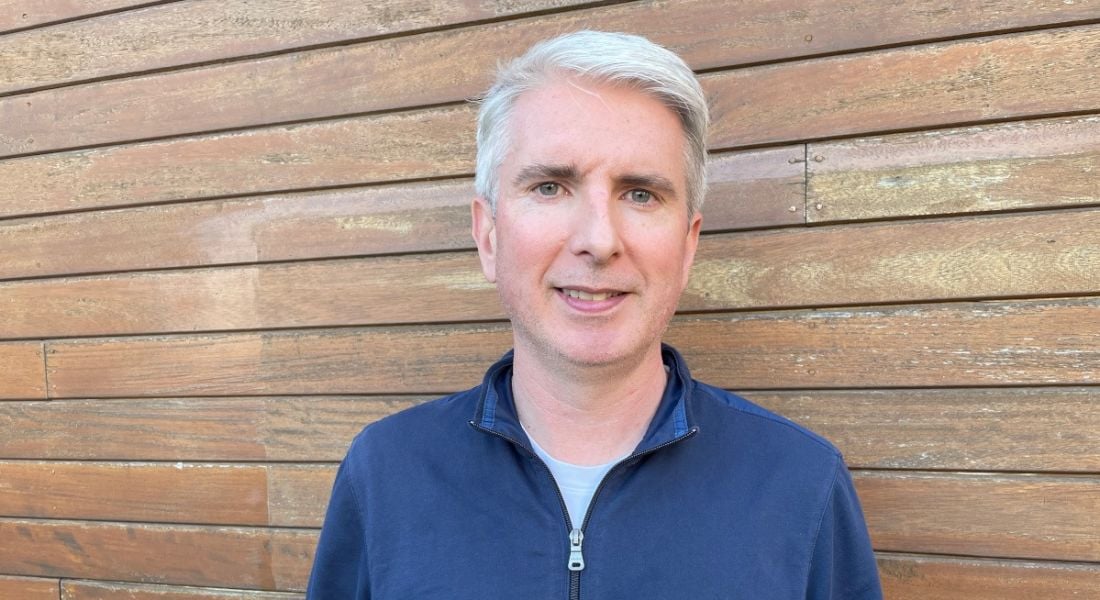Intel’s John Walsh talks about the importance of finding positives from every project, even if a product doesn’t make it to market.
After completing a bachelor’s degree in software development, John Walsh joined the Motorola research and development team in Cork as part of its graduate programme.
He then moved to Intel in 2007 where he worked in several roles in development, validation and project management before taking on the role of software engineering manager for the Intel IoT wearables group.
“This role ultimately led me to my current role of AI software engineering manager as part of the Intel Movidius Vision Processing Unit (VPU) IP AI team. The team and the technology that we are now focused on is incredible and there is so much more to come,” he told SiliconRepublic.com.
“As AI is such an interesting area to get involved in, we have grown our team and have recently moved into a brand-new office space that has been set up with the specific needs of the VPU software and hardware engineering team.”
‘It’s very satisfying to be able to support the development of engineers’
– JOHN WALSH
What first stirred your interest in a career in AI?
In recent years there has been major uplift and focus on AI and when the opportunity was available to be part of the Intel Movidius VPU AI team, it felt like a great time to get involved.
Movidius was a start-up that Intel acquired with very exciting technology and products that were out in the market, so I could see what was already possible and I wanted to part of the next generation of products and AI development. Prior to joining the VPU AI team, I had been working on very low-power microcontrollers for the IoT market.
What were the biggest surprises you encountered on your career path?
When a project or product is successful and you are part of the team that brings it to market, there can be incredible sense of achievement. However, I am wary of making that the only mark of a successful project. Over the years, I’ve learned that the relationships that I build and what I get the opportunity to learn is more important in the long run.
Not all projects are successful for many reasons and when you work on a product line concept or technology for years you can get very invested. It can be incredibly disappointing if it does not proceed to market or if that product idea is discontinued.
This is compounded if teams get disbanded. However, I have found that there are always positives that can be taken from any experience. For me, learning is always high on my list of criteria for evaluating success. If I am learning, I am growing.
Was there any one person who was particularly influential as your career developed?
During my career I’ve been very fortunate to work with a number of incredibly talented and experienced engineers and managers who have taken the time to support and help me grow.
The first step is asking for help or advice. At various stages of my career, there has always been someone that I could contact for help, support or advice.
What do you enjoy about your job?
The software teams that I manage at Intel Ireland roll up as part of a larger software organisation, but I really enjoy working with the various engineers and team leads to overcome technical and strategic challenges.
Several members of the team joined as graduates but have progressed their careers and are now senior engineers making incredible contributions.
It’s very satisfying to be able to support the development of engineers and help them to grow their skills while helping to deliver products that can make a difference to people.
What aspects of your personality do you feel make you suited to this job?
I get on well with others and work to set up the teams I manage to be successful in achieving results, but also ensuring they have career progression.
Having a genuine interest in helping people develop and caring makes the management role much more enjoyable and fulfilling.
How did Intel support you on your career path?
Intel is very supportive and encouraging for career development and progression. There is a strong emphasis on owning your career and working with your manager to find the best fit for your personal career goals and what the company needs.
During my time at Intel, I have worked in several roles and as I gained experience and skills, additional opportunities have become available that are aligned with my career aspirations.
What advice would you give to those considering a career in AI?
Build out your network and find someone who is doing your desired role or working in the area that you are particularly interested in.
Talk to them about their experience and explain your background and listen to all the advice you can get.
10 things you need to know direct to your inbox every weekday. Sign up for the Daily Brief, Silicon Republic’s digest of essential sci-tech news.




